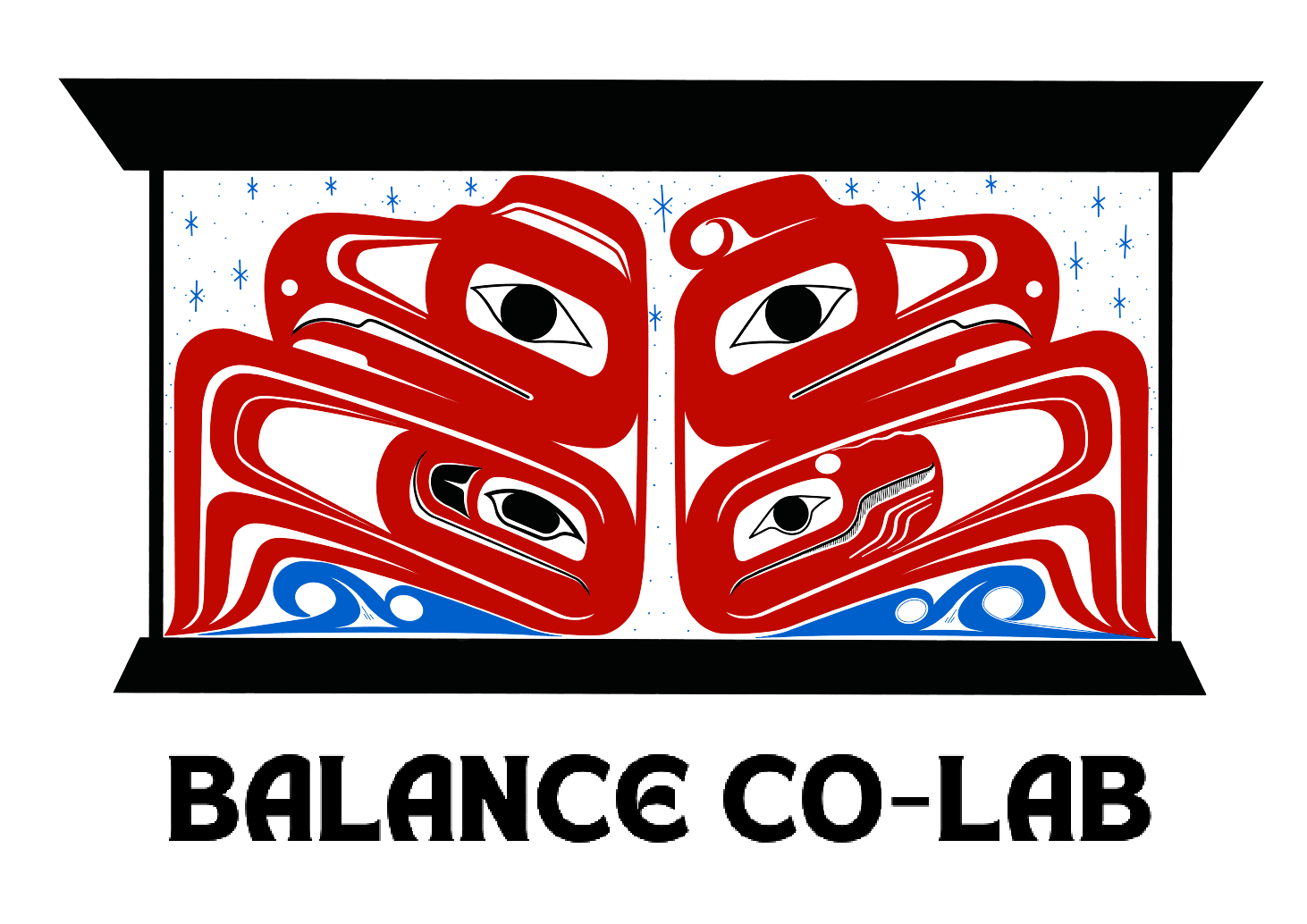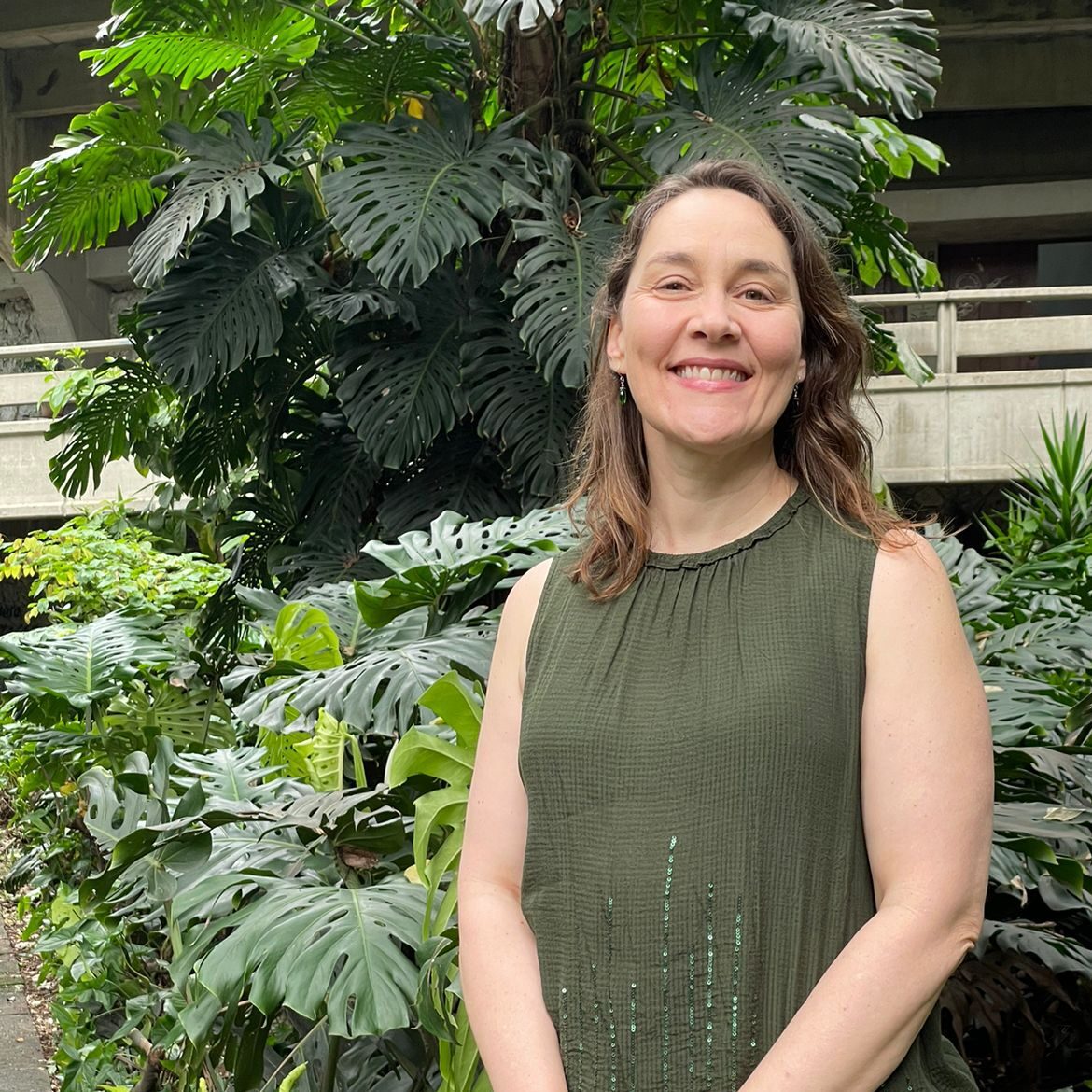Governance
Our governance structure promotes our deep commitment to Indigenous self-determination while creating space for community-based partners to direct the work of Project Teams in ways that are aligned with their interest and needs.
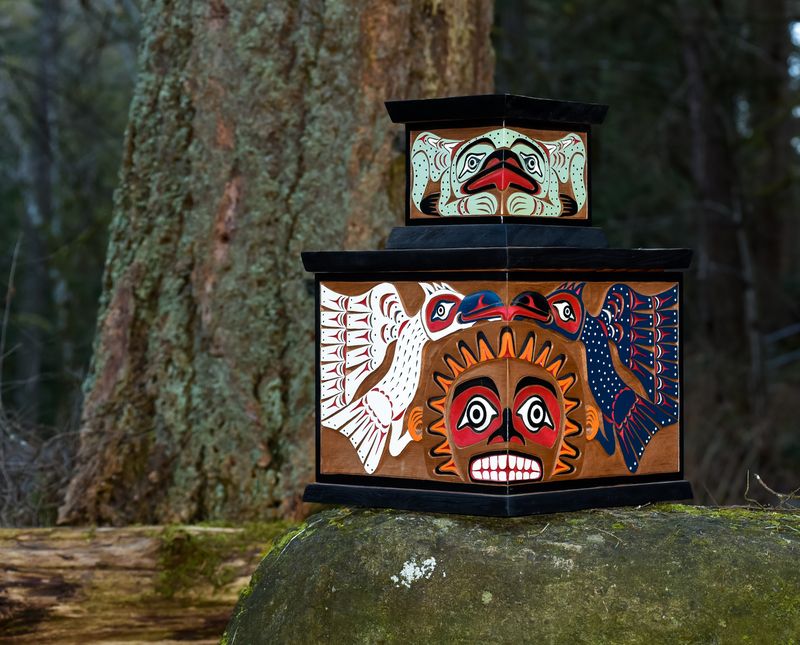
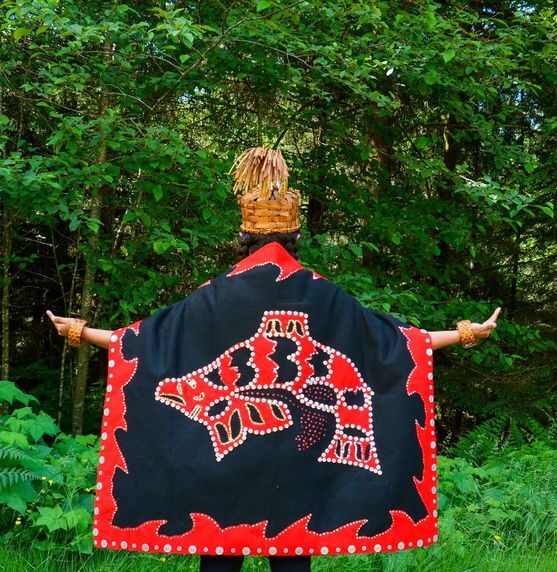
Inclusive Decision Making, Collective Accountability
Guided by our theoretical approach that emphasizes Indigenous self-determination and our methodological approach that focuses on community-based participatory action research methods, our governance reflects our spirit of collaboration, transparency, reciprocity and knowledge sharing across and within the partnership.
Learn MoreCouncil of Senior Advisors
Our Council of Senior Advisors consists of Indigenous leaders, Knowledge Keepers and Elders who have extensive expertise providing intellectual and strategic direction to Indigenous organizations.
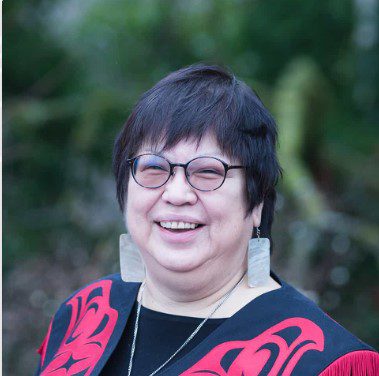
Cloy-e-iis Judith Sayers (she/her)
President, nuu-chah-nulth tribal council
Cloy-e-iis Judith Sayers is the President of the Nuu-chah-nulth Tribal Council, Chancellor of Vancouver Island University and an adjunct professor with both the School of Business and Environmental Studies at the University of Victoria. Judith is a prominent Indigenous leader, sustainable development advocate and a passionate educator. She practiced law for 18 years, working in international forums and lobbying governments for the promotion and protection of First Nations rights and titles, and served 14 years as Chief of the Hupacasath First Nation. As Chief, she was instrumental in several sustainable development projects and put mechanisms in place to help protect the territory. Judith is a Member of the Order of Canada, has received the Silver Award from the Canadian Environmental Association for Climate change, has been inducted into the Canadian Council of Aboriginal Business Hall of Fame and has been the recipient of the Bora Laskin Fellowship on Human Rights.
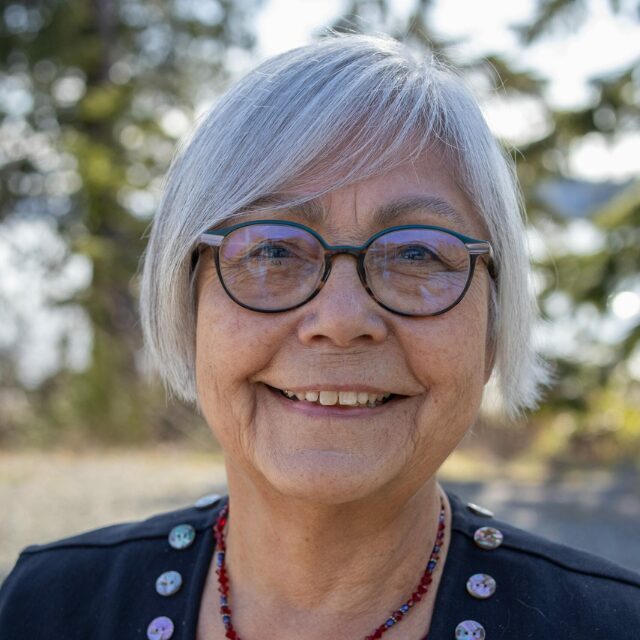
Wii-tsuts-koom Anne Mack (she/her)
Chief, Toquaht Nation
Wii-tsuts-koom Anne Mack is a Hereditary Chief of the Toquaht Nation and serves on the Nuu-chah-nulth Council of Ha’wiih (Hereditary Chiefs). She has a BA in Sociology and Anthropology with a Minor in Linguistics from Simon Fraser University. She now lives in her village at Macoah in Toquaht Bay, in Barkley Sound and is the grandmother of seven grandchildren.
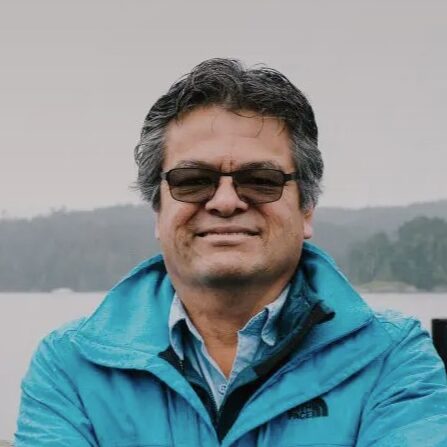
Hya-Quatcha Gordon Planes (he/him)
Former chief, T’sou-ke First nation
Gordon Planes (Hya-Quatcha) is the former Chief of T’Sou-ke Nation on southern Vancouver Island. Chief for over 15 years, he was instrumental in initiating a 100-year process to build a new community vision that focuses on autonomy, food and water security, language and culture revitalization, and economic development. He serves as a director on the Lands Advisory Board which oversees First Nations land management across Canada. Under his leadership, T’Sou-ke Nation emerged as one of Canada’s leaders in sustainable development, renewable energy and green infrastructure, and is listed as the most solar-intensive community in Canada.
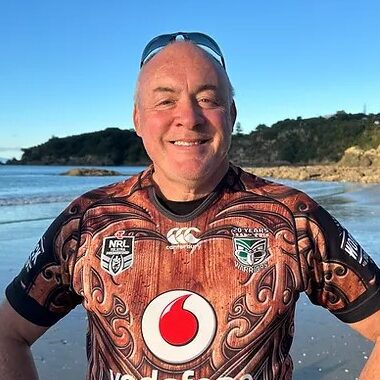
Kēpa Morgan (he/him)
founder, Mahi maioro professionals
Kēpa developed the Mauri Model, a decision-making framework that combines a stakeholder assessment of worldviews, with an impact assessment of indicators to determine sustainability and trends over time. This framework uses the concept of mauri as the measure of sustainability, rather than conventional monetary based assessment.
The Mauri Model measures mauri in four dimensions of well being – environmental (Taiao), cultural (Hapū), social (Hapori) and economic (Whānau).
Executive Leadership Team
Our Executive Leadership Team builds on existing relationships between scholars and emerges from 10 years of collaborative research between many members of the team and the community-based partners. They provide leadership, guidance and research direction for The Balance Co-Lab.
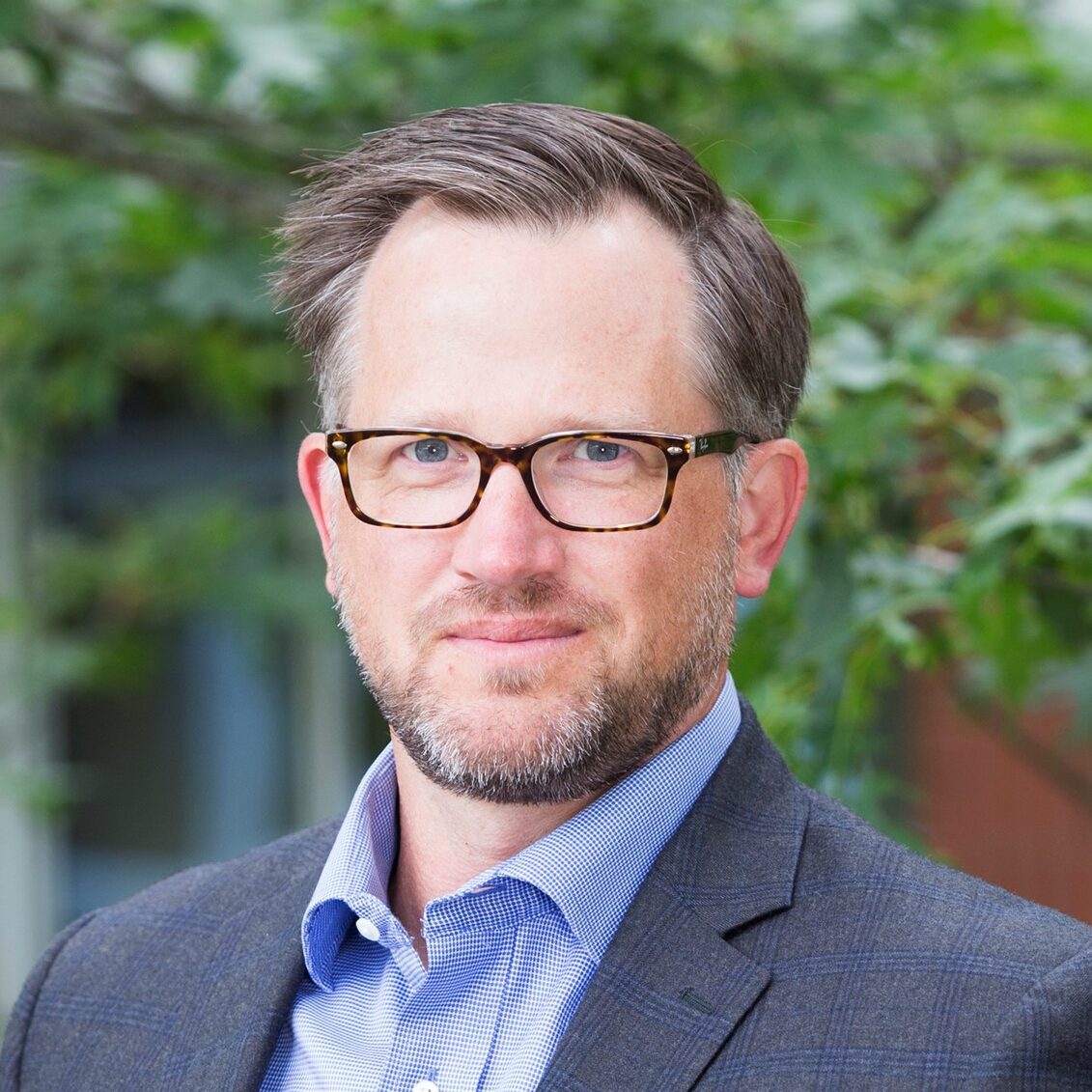
Matt Murphy (he/him)
Program Director, balance co-Lab
Matt Murphy, an associate professor of sustainability and strategy at the Gustavson School of Business at the University of Victoria, teaches and carries out research in the areas of sustainability and social entrepreneurship. Matt is a settler of Irish, English and Scottish decent, and a 7th generation Texan raised on traditional territory of the Comanche and Kiowa Peoples. He currently resides on the traditional, ancestral, and unceded lands of the Lək̓ʷəŋən and W̱SÁNEĆ Peoples. Through collaboration and community-based action research, Matt works with Indigenous partners to co-develop decision support and (cumulative) impact assessment systems to further self-determination, stewardship, and economic development efforts.
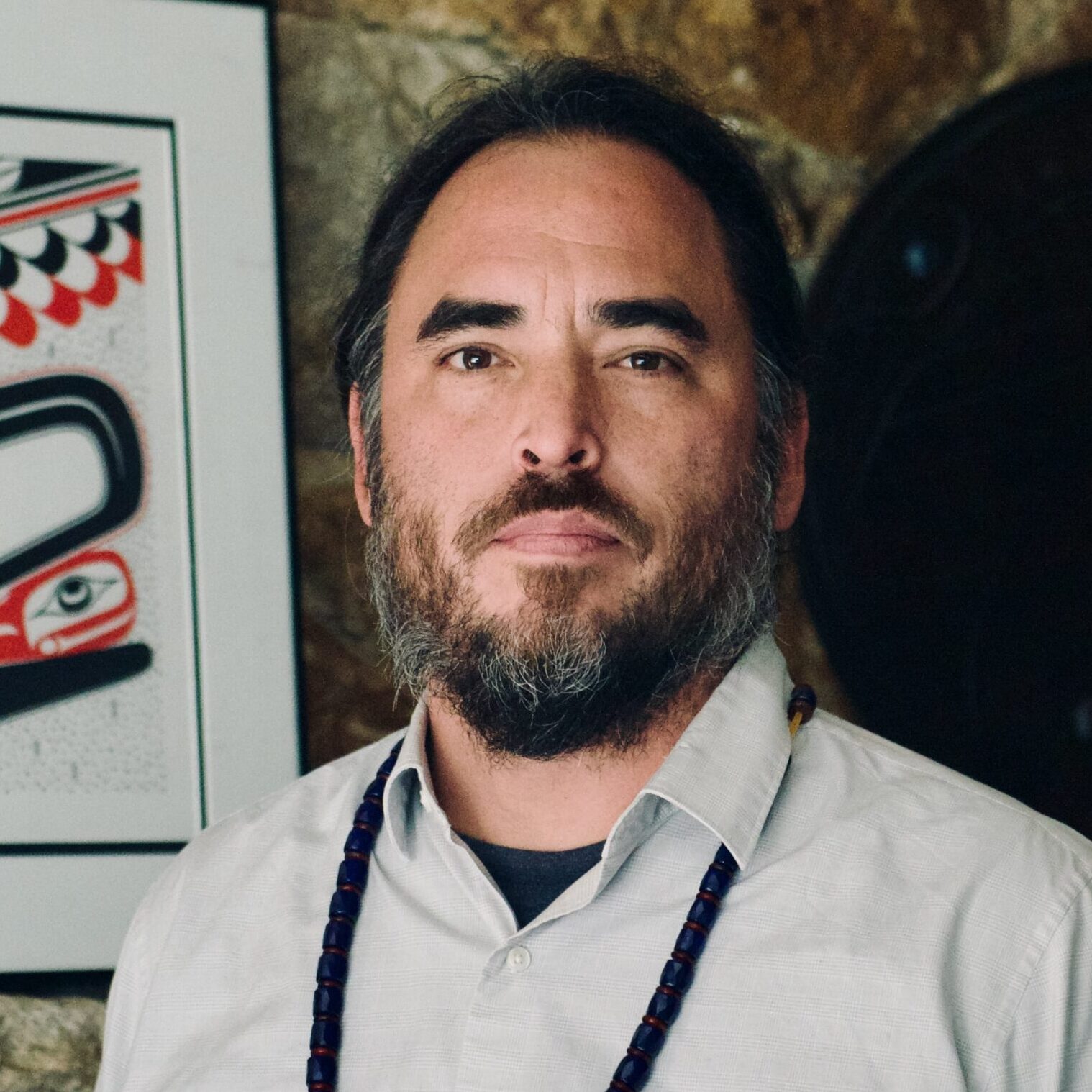
Heynahmeek Johnny Mack (he/him)
Co-Director, balance co-lab
Heynahmeek Johnny Mack is from the Toquaht Nation (Nuu-chah-nulth) and is Assistant Professor at UBC Allard School of Law. His research investigates the legal relationship between Indigenous and settler peoples in contemporary settler states, particularly Canada, as well as Indigenous constitutionalism, subjectivity, critical theory, and legal pluralism. An impassioned advocate for Indigenous peoples on the West Coast of Vancouver Island, Johnny’s involvement has been both formal, as a policy analyst for Aboriginal organizations, and informal, as a community activist working to create constructive critical dialogue on the subject of contemporary Treaty negotiations.
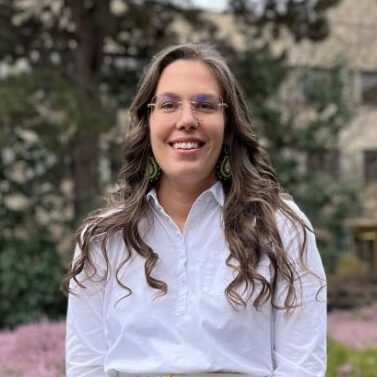
Unxiimtunaat Emily Salmon (she/her)
Co-Director, balance co-lab
Unxiimtunaat Emily Salmon is a Cowichan Tribes citizen and an assistant professor at the Beedie School of Business. Her research explores how stakeholders enhance their well-through relationships with external firms, particularly within the context of Indigenous communities and extractive projects in Canada. In addition, she investigates efforts to Indigenize business education, aiming to better incorporate Indigenous voices and practices in business classrooms and research. Beyond academia, her professional experience has encompassed various roles supporting Indigenous communities in their self-determination journeys, focusing on economic development, community governance, and human resources management.
Partnership Committee
Representing key Community Partners from Project Teams, the Partnership Committee gathers quarterly to network, identify shared experiences and facilitate training and knowledge sharing across the partnership.

Matt Murphy (they/them)
Program Director, Balance Co-Lab
Matt Murphy, an associate professor of sustainability and strategy at the Gustavson School of Business at the University of Victoria, teaches and carries out research in the areas of sustainability and social entrepreneurship. Matt is a settler of Irish, English and Scottish decent, and a 7th generation Texan raised on traditional territory of the Comanche and Kiowa Peoples. He currently resides on the traditional, ancestral, and unceded lands of the Lək̓ʷəŋən and W̱SÁNEĆ Peoples. Through collaboration and community-based action research, Matt works with Indigenous partners to co-develop decision support and (cumulative) impact assessment systems to further self-determination, stewardship, and economic development efforts.

Heynahmeek Johnny Mack (they/them)
Co-Director, Balance Co-Lab
Heynahmeek Johnny Mack is from the Toquaht Nation (Nuu-chah-nulth) and is Assistant Professor at UBC Allard School of Law. His research investigates the legal relationship between Indigenous and settler peoples in contemporary settler states, particularly Canada, as well as Indigenous constitutionalism, subjectivity, critical theory, and legal pluralism. An impassioned advocate for Indigenous peoples on the West Coast of Vancouver Island, Johnny’s involvement has been both formal, as a policy analyst for Aboriginal organizations, and informal, as a community activist working to create constructive critical dialogue on the subject of contemporary Treaty negotiations.

Unxiimtunaat Emily Salmon (they/them)
Co-Director, Balance Co-Lab
Unxiimtunaat Emily Salmon is a Cowichan Tribes citizen and an assistant professor at the Beedie School of Business. Her research explores how stakeholders enhance their well-through relationships with external firms, particularly within the context of Indigenous communities and extractive projects in Canada. In addition, she investigates efforts to Indigenize business education, aiming to better incorporate Indigenous voices and practices in business classrooms and research.
Beyond academia, her professional experience has encompassed various roles supporting Indigenous communities in their self-determination journeys, focusing on economic development, community governance, and human resources management.
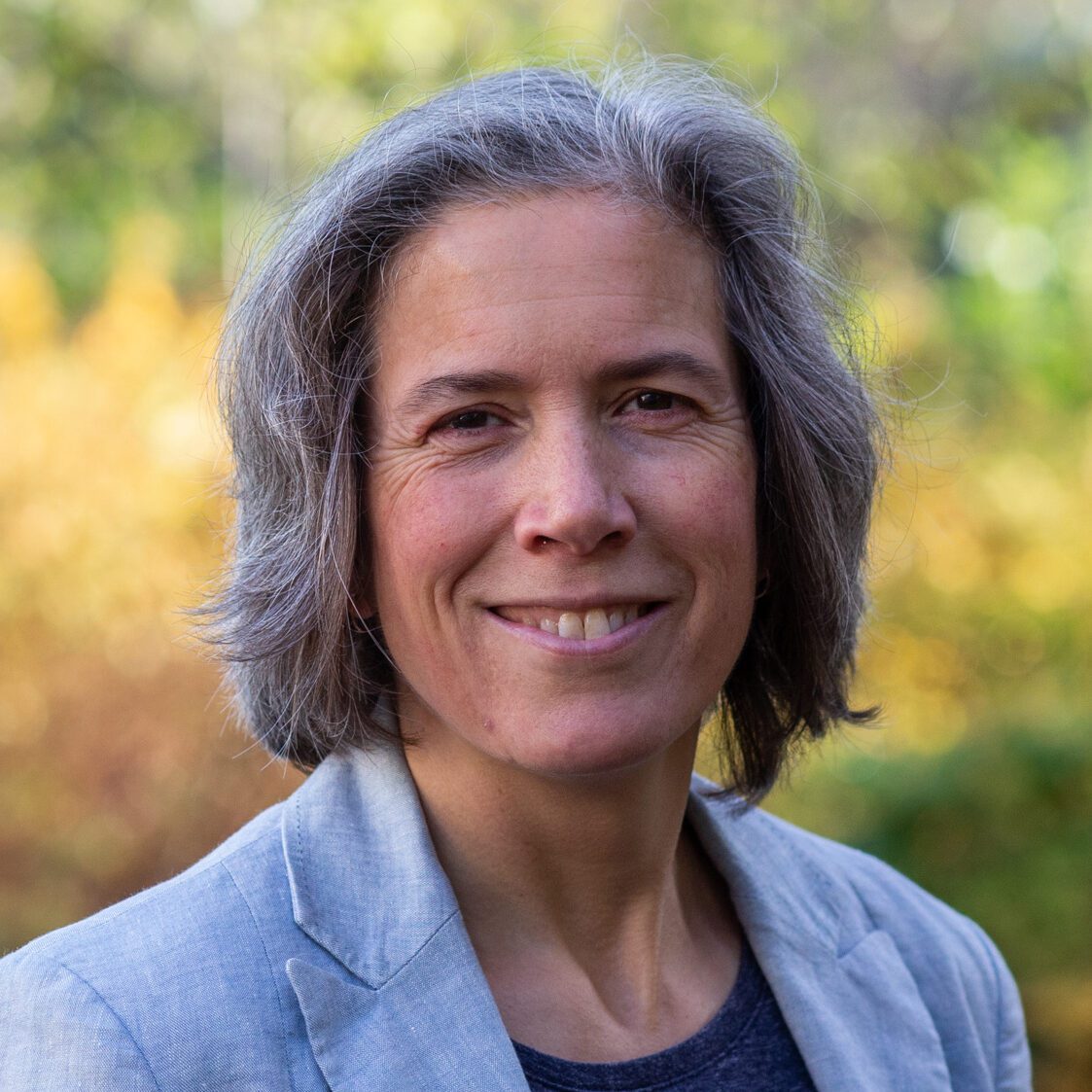
Deborah Curran (she/her)
Executive Director, Environmental Law Centre Faculty of Law, University of Victoria
Deborah Curran
Executive Director, Environmental Law Centre, Faculty of Law, University of Victoria
Both in research and practice, Deborah is engaged in the subjects of water and regional or watershed sustainability. Flowing through all of her research is an interest in how legal and policy structures facilitate or impede us from adapting to changing ecological conditions, and shape decision-making through governance processes. Adaptive governance assists us to respond to socioecological conditions, and law – indigenous, customary community, municipal, provincial and federal – plays a foundational role in how well any watershed community responds over time or to specific events.
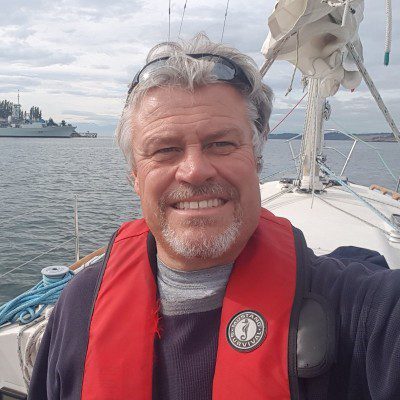
Kurt Salchert (he/him)
Beyond the Border Consulting Ltd.
Captain (RCN Ret’d) Kurt Salchert, PMP is the founder of Beyond the Border Consulting Ltd., a Victoria-based professional services firm specializing in the delivery of decision-support technology and solutions to improve community resilience and promote innovation in Canada’s growing Blue and Green economies. As senior advisor to T’Sou-ke Nation Chief, Council and Band Administration, he and the Nation are delivering a better tomorrow by applying Indigenous traditional knowledge and modern methods to improve risk-based decisions related to land and marine-use planning and to mitigate health, social, cultural and economic impacts of human activity and the failure of climate change adaptation. His clients also include the UN Office on Drugs and Crime, federal, provincial, local and First Nation governments, the marine industry, environmental NGOs, academia and research centres of excellence. Between projects, Kurt enjoys sailing in the Pacific Northwest with his family and Winston, his deaf and blind Boston Terrier.
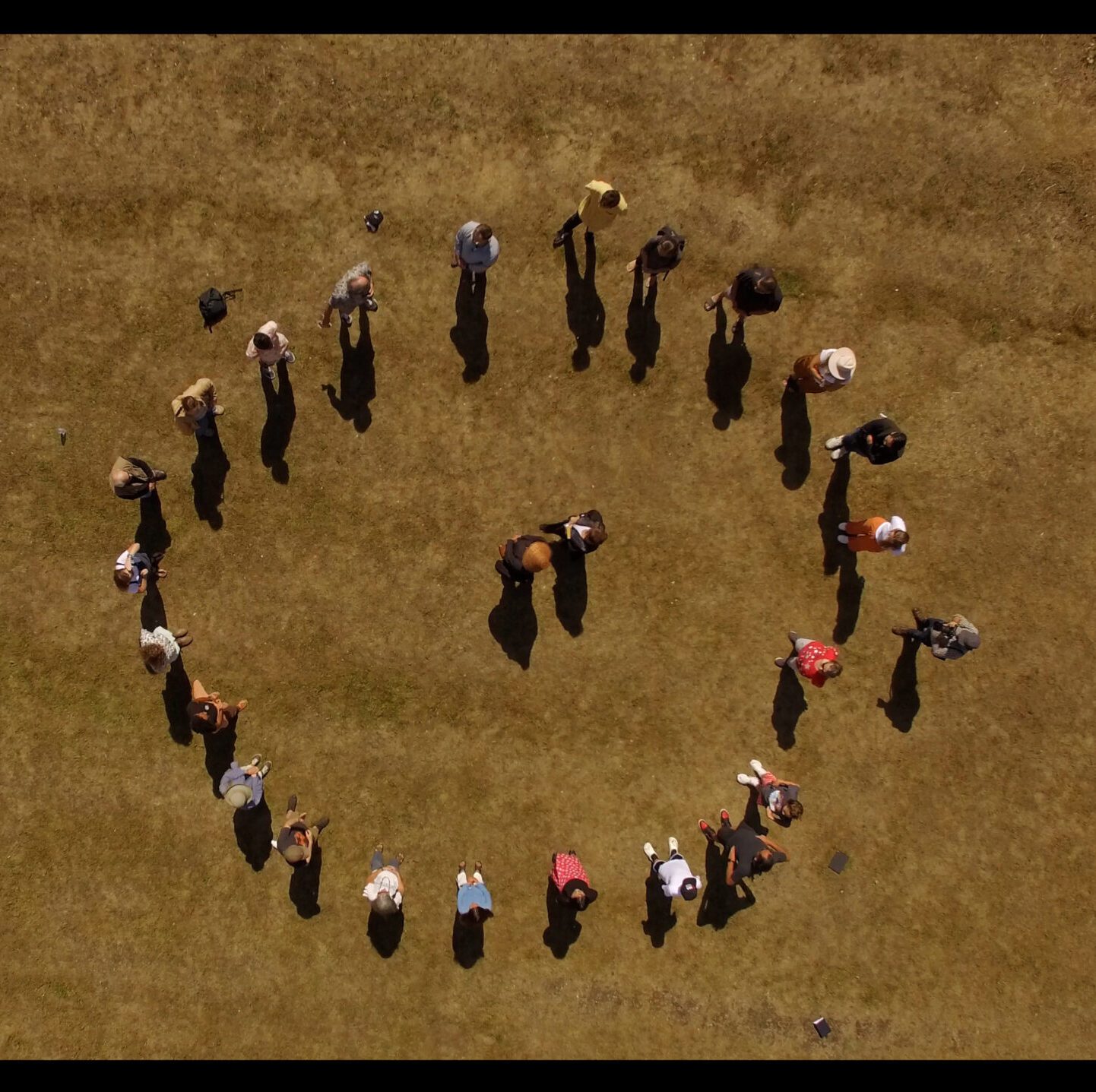
Audrey Adelinet (she/her)
Development Manager, Ha’oom Fisheries Society
Audrey joined Ha’oom in June 2021. She has a Master’s degree in International Law and a Master’s degree in Project Management from the Aix-Marseille University. Originally from France, Audrey also grew up in the countries of Morocco and Tanzania. Before coming to Vancouver, she worked overseas in Nepal and Cambodia for a children’s rights organization.
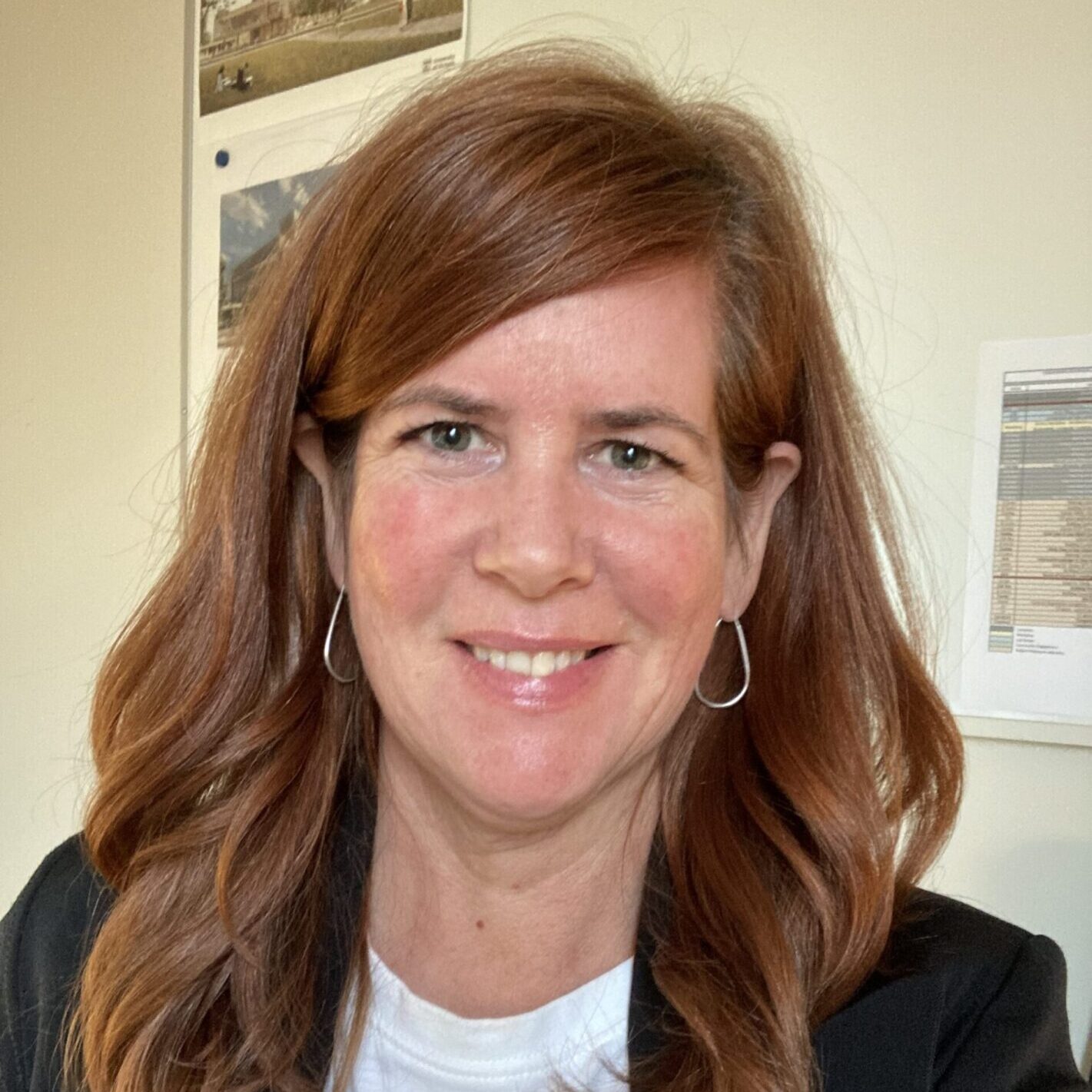
Catherine Schafers (she/her)
Program Manager, balance co-lab
Catherine is delighted to join the Balance Co-Lab team in her role as Program Manager. A settler of Irish and Scottish ancestry, she is grateful to reside and work on the traditional, ancestral, and unceded lands of the Lək̓ʷəŋən and WSÁNEĆ Peoples. With a background in business and project management, Catherine brings a wealth of knowledge and experience from her work on sustainability-focused development projects in Canada and Mexico. Her proven ability to work collaboratively, creatively, and generously with all project participants transitions well and aligns with the goals of the Balance Co-Lab. Catherine strives to be an ally to First Nations through continuous learning, listening, and advocacy.
Council of Senior Advisors
Experts in community-based research and sustainable Indigenous community development, Knowledge Keepers and Elders provide direction and insights to team members regarding community priorities and the most relevant values, knowledge, and governance practices to guide decision-support and impact evaluation systems.

Cloy-e-iis Judith Sayers (she/her)
President, nuu-chah-nulth tribal council
Cloy-e-iis Judith Sayers is the President of the Nuu-chah-nulth Tribal Council, Chancellor of Vancouver Island University and an adjunct professor with both the School of Business and Environmental Studies at the University of Victoria. Judith is a prominent Indigenous leader, sustainable development advocate and a passionate educator. She practiced law for 18 years, working in international forums and lobbying governments for the promotion and protection of First Nations rights and titles, and served 14 years as Chief of the Hupacasath First Nation. As Chief, she was instrumental in several sustainable development projects and put mechanisms in place to help protect the territory. Judith is a Member of the Order of Canada, has received the Silver Award from the Canadian Environmental Association for Climate change, has been inducted into the Canadian Council of Aboriginal Business Hall of Fame and has been the recipient of the Bora Laskin Fellowship on Human Rights.

Wii-tsuts-koom Anne Mack (she/her)
Chief, Toquaht Nation
Wii-tsuts-koom Anne Mack is a Hereditary Chief of the Toquaht Nation and serves on the Nuu-chah-nulth Council of Ha’wiih (Hereditary Chiefs). She has a BA in Sociology and Anthropology with a Minor in Linguistics from Simon Fraser University. She now lives in her village at Macoah in Toquaht Bay, in Barkley Sound and is the grandmother of seven grandchildren.

Hya-Quatcha Gordon Planes (he/him)
Former chief, T’sou-ke First nation
Gordon Planes (Hya-Quatcha) is the former Chief of T’Sou-ke Nation on southern Vancouver Island. Chief for over 15 years, he was instrumental in initiating a 100-year process to build a new community vision that focuses on autonomy, food and water security, language and culture revitalization, and economic development. He serves as a director on the Lands Advisory Board which oversees First Nations land management across Canada. Under his leadership, T’Sou-ke Nation emerged as one of Canada’s leaders in sustainable development, renewable energy and green infrastructure, and is listed as the most solar-intensive community in Canada.

Kēpa Morgan (he/him)
founder, Mahi maioro professionals
Kēpa developed the Mauri Model, a decision-making framework that combines a stakeholder assessment of worldviews, with an impact assessment of indicators to determine sustainability and trends over time. This framework uses the concept of mauri as the measure of sustainability, rather than conventional monetary based assessment.
The Mauri Model measures mauri in four dimensions of well being – environmental (Taiao), cultural (Hapū), social (Hapori) and economic (Whānau).
Executive Leadership Team
Our Executive Team builds on existing relationships between scholars and emerges from 10 years of collaborative research between many members of the team and the community-based partners. They provide leadership, guidance and research direction for The Balance Co-Lab.

Matt Murphy (he/him)
Program Director, balance co-Lab
Matt Murphy, an associate professor of sustainability and strategy at the Gustavson School of Business at the University of Victoria, teaches and carries out research in the areas of sustainability and social entrepreneurship. Matt is a settler of Irish, English and Scottish decent, and a 7th generation Texan raised on traditional territory of the Comanche and Kiowa Peoples. He currently resides on the traditional, ancestral, and unceded lands of the Lək̓ʷəŋən and W̱SÁNEĆ Peoples. Through collaboration and community-based action research, Matt works with Indigenous partners to co-develop decision support and (cumulative) impact assessment systems to further self-determination, stewardship, and economic development efforts.

Heynahmeek Johnny Mack (he/him)
Co-Director, balance co-lab
Heynahmeek Johnny Mack is from the Toquaht Nation (Nuu-chah-nulth) and is Assistant Professor at UBC Allard School of Law. His research investigates the legal relationship between Indigenous and settler peoples in contemporary settler states, particularly Canada, as well as Indigenous constitutionalism, subjectivity, critical theory, and legal pluralism. An impassioned advocate for Indigenous peoples on the West Coast of Vancouver Island, Johnny’s involvement has been both formal, as a policy analyst for Aboriginal organizations, and informal, as a community activist working to create constructive critical dialogue on the subject of contemporary Treaty negotiations.

Unxiimtunaat Emily Salmon (she/her)
Co-Director, balance co-lab
Unxiimtunaat Emily Salmon is a Cowichan Tribes citizen and an assistant professor at the Beedie School of Business. Her research explores how stakeholders enhance their well-through relationships with external firms, particularly within the context of Indigenous communities and extractive projects in Canada. In addition, she investigates efforts to Indigenize business education, aiming to better incorporate Indigenous voices and practices in business classrooms and research. Beyond academia, her professional experience has encompassed various roles supporting Indigenous communities in their self-determination journeys, focusing on economic development, community governance, and human resources management.
Partnership Committee
Representing key Community Partners from Project Teams, the Partnership Committee gathers quarterly to network, identify shared experiences and facilitate training and knowledge sharing across the partnership.

Matt Murphy (they/them)
Program Director, Balance Co-Lab
Matt Murphy, an associate professor of sustainability and strategy at the Gustavson School of Business at the University of Victoria, teaches and carries out research in the areas of sustainability and social entrepreneurship. Matt is a settler of Irish, English and Scottish decent, and a 7th generation Texan raised on traditional territory of the Comanche and Kiowa Peoples. He currently resides on the traditional, ancestral, and unceded lands of the Lək̓ʷəŋən and W̱SÁNEĆ Peoples. Through collaboration and community-based action research, Matt works with Indigenous partners to co-develop decision support and (cumulative) impact assessment systems to further self-determination, stewardship, and economic development efforts.

Heynahmeek Johnny Mack (they/them)
Co-Director, Balance Co-Lab
Heynahmeek Johnny Mack is from the Toquaht Nation (Nuu-chah-nulth) and is Assistant Professor at UBC Allard School of Law. His research investigates the legal relationship between Indigenous and settler peoples in contemporary settler states, particularly Canada, as well as Indigenous constitutionalism, subjectivity, critical theory, and legal pluralism. An impassioned advocate for Indigenous peoples on the West Coast of Vancouver Island, Johnny’s involvement has been both formal, as a policy analyst for Aboriginal organizations, and informal, as a community activist working to create constructive critical dialogue on the subject of contemporary Treaty negotiations.

Unxiimtunaat Emily Salmon (they/them)
Co-Director, Balance Co-Lab
Unxiimtunaat Emily Salmon is a Cowichan Tribes citizen and an assistant professor at the Beedie School of Business. Her research explores how stakeholders enhance their well-through relationships with external firms, particularly within the context of Indigenous communities and extractive projects in Canada. In addition, she investigates efforts to Indigenize business education, aiming to better incorporate Indigenous voices and practices in business classrooms and research.
Beyond academia, her professional experience has encompassed various roles supporting Indigenous communities in their self-determination journeys, focusing on economic development, community governance, and human resources management.

Deborah Curran (she/her)
Executive Director, Environmental Law Centre Faculty of Law, University of Victoria
Deborah Curran
Executive Director, Environmental Law Centre, Faculty of Law, University of Victoria
Both in research and practice, Deborah is engaged in the subjects of water and regional or watershed sustainability. Flowing through all of her research is an interest in how legal and policy structures facilitate or impede us from adapting to changing ecological conditions, and shape decision-making through governance processes. Adaptive governance assists us to respond to socioecological conditions, and law – indigenous, customary community, municipal, provincial and federal – plays a foundational role in how well any watershed community responds over time or to specific events.

Kurt Salchert (he/him)
Beyond the Border Consulting Ltd.
Captain (RCN Ret’d) Kurt Salchert, PMP is the founder of Beyond the Border Consulting Ltd., a Victoria-based professional services firm specializing in the delivery of decision-support technology and solutions to improve community resilience and promote innovation in Canada’s growing Blue and Green economies. As senior advisor to T’Sou-ke Nation Chief, Council and Band Administration, he and the Nation are delivering a better tomorrow by applying Indigenous traditional knowledge and modern methods to improve risk-based decisions related to land and marine-use planning and to mitigate health, social, cultural and economic impacts of human activity and the failure of climate change adaptation. His clients also include the UN Office on Drugs and Crime, federal, provincial, local and First Nation governments, the marine industry, environmental NGOs, academia and research centres of excellence. Between projects, Kurt enjoys sailing in the Pacific Northwest with his family and Winston, his deaf and blind Boston Terrier.

Audrey Adelinet (she/her)
Development Manager, Ha’oom Fisheries Society
Audrey joined Ha’oom in June 2021. She has a Master’s degree in International Law and a Master’s degree in Project Management from the Aix-Marseille University. Originally from France, Audrey also grew up in the countries of Morocco and Tanzania. Before coming to Vancouver, she worked overseas in Nepal and Cambodia for a children’s rights organization.

Catherine Schafers (she/her)
Program Manager, balance co-lab
Catherine is delighted to join the Balance Co-Lab team in her role as Program Manager. A settler of Irish and Scottish ancestry, she is grateful to reside and work on the traditional, ancestral, and unceded lands of the Lək̓ʷəŋən and WSÁNEĆ Peoples. With a background in business and project management, Catherine brings a wealth of knowledge and experience from her work on sustainability-focused development projects in Canada and Mexico. Her proven ability to work collaboratively, creatively, and generously with all project participants transitions well and aligns with the goals of the Balance Co-Lab. Catherine strives to be an ally to First Nations through continuous learning, listening, and advocacy.
Contact Us
Provide as much detail as you can, and a Balance Co-Lab team member will contact you to find out more about how we can support your community’s goals.
Get in Touch